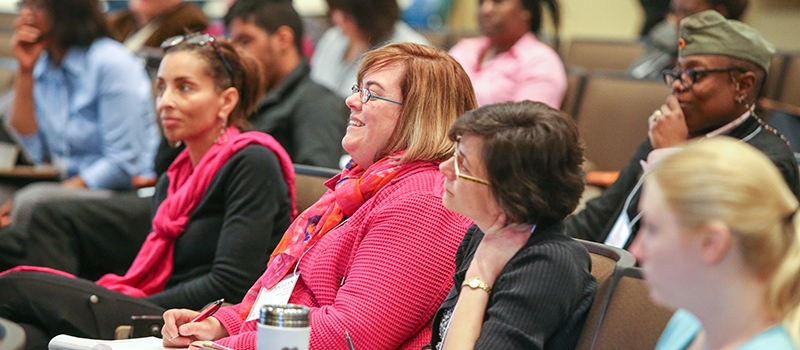Course Delivery
Online and Hybrid

The Master of Education (M.Ed.) in Literacy and Language program at Miami University prepares students to become literacy leaders and reading specialists in K-12 schools. Through advanced coursework and a supervised practicum, students engage with current research to support all learners. The program explores the cultural, linguistic, and other diverse identity and environmental factors that influence literacy development. Faculty guide students in considering how this can shape assessment and instructional design in their classrooms.
Course Delivery
Online and Hybrid
31
Credit Hours
12 Months
Full-Time Program Duration
$698
Per Credit Hour
Our program’s versatile design provides online delivery of the core courses with options for electives that are online, hybrid, or on-campus at Miami's Voice of America Learning Center in West Chester, Ohio. You can move at your own pace by completing the program full-time in 12 months or choosing part-time study.
Gain over 100 hours of in-classroom experience through a practicum that integrates literacy theory with fieldwork. This experiential learning ensures that your coursework and applied language strategies become tools you can use with your students the next day.

Miami University's Master of Education in Literacy and Language hybrid program prepares you to become a reading specialist, improve classroom outcomes, and influence literacy education as a leader. With the flexibility to study fully online or have some in-person courses, you can advance your career while making a meaningful impact on student learning.
With small class sizes, students become part of a close-knit literacy community. This allows for personalized mentorship from faculty and interactions with peers, where you can share your views and learn from other perspectives. The connections students create often continue beyond graduation, expanding your professional network.
As part of the program, we encourage you to get involved in Miami’s annual Literacy and Language Conference. Through the experience, you can present your work, network with professionals, and further develop your literacy leadership skills. It can also strengthen your résumé for future job opportunities in educational settings.
Miami University undergraduates can accelerate their path to an M.Ed. through the combined bachelor's/master’s program.
Miami’s M.Ed. in Literacy and Language curriculum emphasizes the value of literacy instruction while addressing the needs of diverse learners, from early readers to multilingual learners. Explore how culture and social factors influence language development and examine current issues like the science of reading.
With 15 credit hours of elective coursework, you can tailor the program to your interests with interdisciplinary courses in Teaching English to Speakers of Other Languages (TESOL), educational psychology, curriculum design, and more.
Upon completing the program, you earn a Master of Education in Literacy and Language degree. Reading Endorsement Certificate courses are embedded within the degree program, enabling you to complete the degree and certificate simultaneously. You may also add a TESOL or Teaching of Writing Certificate, depending on your elective choices.
Our degree includes all courses required for a Reading Endorsement Certificate, equipping you with the credentials to support emergent, struggling, and striving readers. In these classes, you review research findings that influence assessment and instructional design while examining how sociocultural and linguistic factors affect literacy development.
Aligned with the International Literacy Association’s (ILA) 2017 Revised Standards, the M.Ed. in Literacy and Language program prepares you to:
Our program welcomes teachers, aspiring educators, and other professionals interested in strengthening multi-literacy and language practices within academic settings. While many of our students are licensed teachers, a teaching license is not required for admission, making the program accessible to those seeking to earn a master’s in literacy and language.
The program prepares you to lead literacy initiatives, influence educational policy, and take on roles that shape the future of literacy education within schools and in broader educational settings, including:

Apply to Miami’s M.Ed. in Literacy and Language degree program by submitting the following application materials:
Our faculty members are more than instructors — they are mentors, researchers, and practitioners. By combining academic expertise with real-world teaching experience, they ensure you learn proven strategies while staying current with the latest research in literacy education.